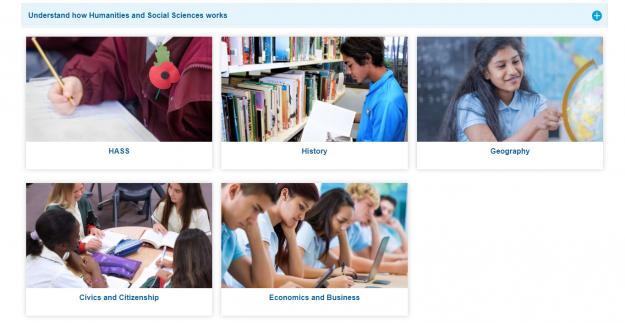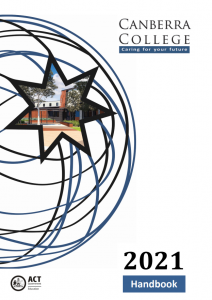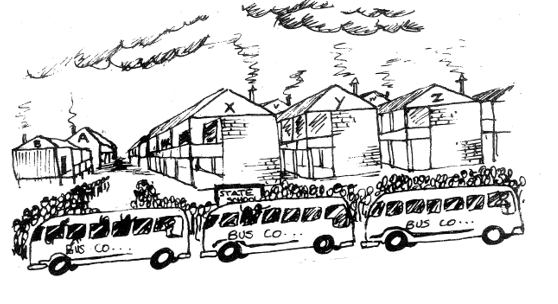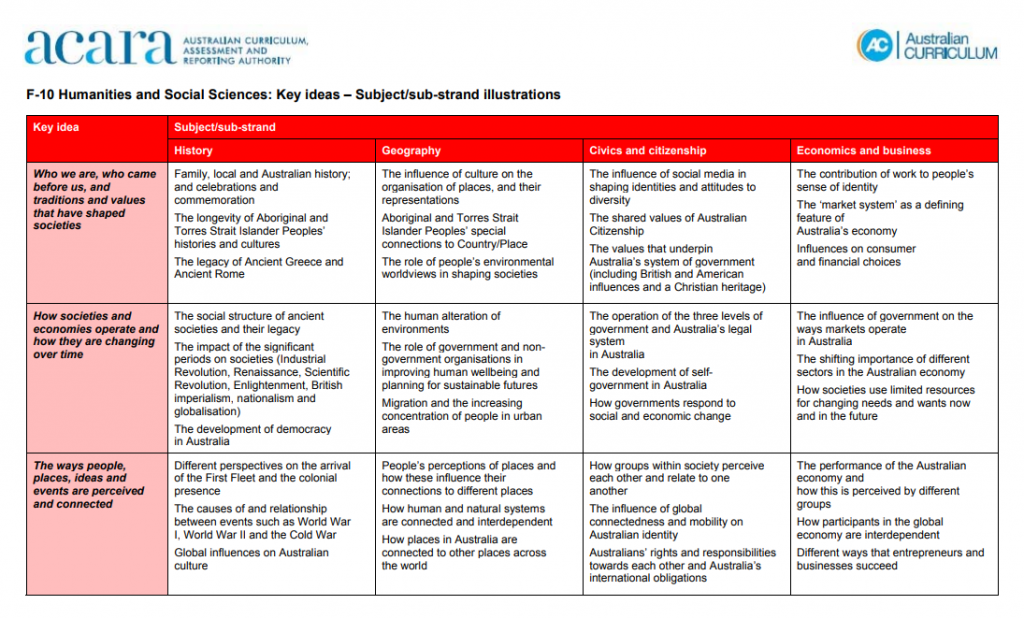Seeking the Post-COVID Sunshine: Is Fine-Tuning of National Curriculum Goals a Sufficient Tinkering with School Priorities?

By Denis Bright
Educational priorities particularly in Humanities (HASS) and both Literary and Environmental Sustainability are key initiatives for the emergence of a more independent and creative Australian society.
Curriculum innovation in HASS ensures that young people are less likely to vote for conservative populists who rely on fear strategies to extend their political influence. The mobilisation of preferences from far-right minor parties in support pf the federal LNP in outer metropolitan and regional seats with high levels of social disadvantage will be an essential strategy to save the Morrison Government at a strategic early election in late 2021 before the attack on living standards begins in earnest.
Should the LNP achieve endorsement for its future austerity measures, living standards and even civil liberties will be under threat, particularly if the Trump Administration happens to be re-elected on 3 November 2020, this is unlikely but always a possibility until every vote at the US Electoral College is fully counted.
Labor’s challenge to this attempted return to normalcy in a corporate state will require brave initiatives which are comparable to the consciousness raising which produced such good results in the 1960s in areas like health, education, infrastructure planning and greater national independence in defence and foreign policies.
There will be no opposition in Australia to Labor initiatives on behalf of our national curriculum priorities in HASS and improvements to the future focus of literary studies.
However, Labor’s prospects will be diminished if the 2021 poll becomes a khaki election with a focus on national security and a virtual referendum on a deepening relationship with a Republican Administration in the White House with or without President Trump who could be forced to resign as in Nixon’s Watergate years.
Educational priorities in HASS and English literature is always highly political.
Even environmental education can be is highly political. Any creative emphasis on Australia’s links with the Indo Pacific Basin, enhances Australia’s consensus-roles in international affairs at the expense of conventional strategic relations from the Cold War era.

A Canberra insider warned me about the excessive costs of our fleets of F-35 Joint Strike Fighters at a not fully finalised cost (SMH 6 December 2018). The current price tag for each plane is $124 million. The purchase of 141 military planes would certainly purchase a lot of good resources for environmental education and literary studies in our schools (Costs from ABC News 10 December 2018). The federal LNP did not blink at this level of financial commitment.
The pressing demands of disadvantaged schools was easily over-looked by the federal LNP.
In national curriculum reform the Morrison Government has already taken Australians into a cul de sac in which students from disadvantaged areas are left behind the success stories of elite private schools and public education initiatives in well-resourced localities such as the ACT.
The hopes of educators were raised after the election of the Rudd Labor Government in 2007 (ACARA 2020):
Development of the Australian Curriculum
The Australian Curriculum, Assessment and Reporting Authority (ACARA) used an extensive and collaborative curriculum development process to produce the Australian Curriculum.
The Shape of the Australian Curriculum, first approved by the council of Commonwealth and state and territory education ministers in 2009, guided the development of the Australian Curriculum. The paper reflected the position adopted by ministers collectively in their 2008 Melbourne Declaration on Educational Goals for Young Australians (PDF 978 kb). The Shape of the Australian Curriculum v. 4.0 (PDF 402 kb) was approved by the ACARA Board in late 2012, reflecting the evolving processes used in the development of the Australian Curriculum.
Over a decade later, the federal LNP has moved from innovative educational priorities to a focus on testing of standards in basic areas of reading, writing and numeracy as measured by NAPLAN test results.
COVID-19 has given students and teachers a reprise from this testing regime at least until 2021 or later.
Funded by joint federal and state expenditure, ACARA has moved to extend the back to the basics through fine tuning strategies in relation to new Australian curriculum goals:
“Today, education ministers have agreed to terms of reference for the review of the Foundation – Year 10 (F–10) Australian Curriculum, with the review to be completed by the start of 2022.
“We welcome the opportunity to ensure the national curriculum continues to meet the needs of students. The Australian Curriculum is well regarded, however, as it has been in place for some years now, it is timely that it be reviewed,” said ACARA CEO, David de Carvalho.
“Teachers have told us that, particularly in primary years, the Australian Curriculum is overcrowded and does not allow enough time to teach for deep understanding of core concepts or application of knowledge in the learning areas.
“Schools and teachers want a less crowded curriculum, one that provides flexibility and scope for greater depth of learning – and a more helpful curriculum, one that provides more meaningful connections within and across its three dimensions,” said Mr de Carvalho.
In preparing for the review, ACARA has been consulting with key education stakeholders to define the approach to, and scope of, the review. Through its program of research, ACARA has benchmarked the Australian Curriculum against the curricula of Singapore, Finland, British Columbia and New Zealand, and sought feedback from states and territories on the effectiveness of the Australian Curriculum through its annual monitoring process. This work has informed the terms of reference agreed by education ministers.”
The overall finding from ACARA’s program of research is that there is no need, nor support for, a major overhaul of the F–10 Australian Curriculum, but there is broad-based recognition that the current curriculum needs refining, updating and ‘decluttering’ to better support teachers with implementation.
The new ACARA Annual Report 2019-20 is scheduled for release soon. The latest available report shows a disappointing emphasis on National Assessment of School standards and data collection at the expense of a mere 26 per cent commitment of funding to National Curriculum.

Excessive flexibility in the application of curriculum priorities, makes it extremely difficult for corporate publishers of curriculum providers to cope with the differing demands of schools in the various states and territories. Compared with expenditure on NAPLAN testing, expenditure on Curriculum Development was halved in just one financial year from a slender ACARA Budget:

The back to basics rhetoric sounds good but it is time for a progressive national government to rekindle the spirit of the Melbourne Declaration on Educational Goals for Young Australians:

SchoolGovernance (21 February 2019) reminded everyone that the Melbourne Declaration was not merely about more standardised testing:


The most innovative state and private schools will have the resources needed to advance their own curriculum priorities.
In mainstream schools, attaining these goals without adequate curriculum resources is a great pressure on teachers who are under siege from an over-commitment to standardised NAPLAN testing and wider administrative demands.
The Bricks and Mortar strategies to achieve this in a cost-effective manner might justify the formation of senior school campuses within existing school complexes.
 During my teaching career, I was really impressed by behaviour management at schools like Phillip Senior College in the ACT. It is now called Canberra College with its two campuses in the Woden Valley and Weston Creek.
During my teaching career, I was really impressed by behaviour management at schools like Phillip Senior College in the ACT. It is now called Canberra College with its two campuses in the Woden Valley and Weston Creek.
Although it is beyond the resources of most state education authorities to extent the network of such well-resourced senior high schools, it may be possible to expand senior education hubs within existing campuses and new school facilities.
At a recent forum in Mt. Crosby on 12 September 2020, a member of the audience questioned the validity of capping of student enrolments at Kenmore State High School for residents from adjacent suburbs of Ipswich.
The forum was organised by the Kenmore-Bellbowrie Branch of the Labor Party to introduce Roberta Albrecht as ALP Candidate for Moggill at the forthcoming state elections.
Bricks and mortar initiatives to build senior schools within existing 7-12 high school campuses would be a possibility at least for new schools in the Palaszczuk Government ongoing school-buildings programmes:
The Queensland Government’s Building Future Schools (BFS) program is delivering world-class learning environments for Queensland students.
The BFS program is delivering new state schools in growth areas across the state, investing in existing school assets, and making strategic land acquisitions for the future—delivering new and innovative education infrastructure solutions for growing communities.
Over the 10-year period from 2016 to 2026, around 8,000 additional students are forecast to join the Queensland state school networks per year, with a majority of growth within the south–east Queensland region.
Initiatives in the bricks and mortar as well as administrative practices are all necessary to support new curriculum innovations of a new generation of national curriculum programmes.
I was courageous or fool-hardy enough to issue a press release to the Queensland Times in Ipswich during 1983 about the unfortunate state of some local secondary schools in The Low Tax State.

Image: QTU’s Ipswich Secondary Branch Press Release (1983) authorized by Denis Bright with Artistic Work from Teaching Colleague, Rod Cassidy
The LNP’s Focus on School Standards
Years later the focus of educational reform has moved from Bricks and Mortar to the issues connected to curriculum standards and transitions from school to work which I covered in the press release that accompanied the cartoon sketch. The LNP, at both state and federal levels, welcomes this evolution but hardly in the direction that I intended in 1983.
League tables of standardised test results are now scanned as an indicator of comparative school performance to the cheers of the manufacturers of these crude testing indicators both in Australia and overseas.
Australia’s Council for Educational Research (ACER) is now an enthusiastic advocate of the standardised testing model for schools:
Coordinated in Australia by the Australian Council for Educational Research (ACER), the IM2C sees students use their research, mathematical and creative abilities to develop a mathematical model to address a real-world problem.
ACER Principal Research Fellow and IM2C Australia Director, Ross Turner, said this year teams had to review data on goods to be offered during a sale, including the price and discount to be given, in order to identify which items would likely be most popular and the store layout factors that might affect damage risks.
“Teams had to develop and use a model that would predict damage to goods in order to recommend optimal product placement and department locations for the given store layout. Teams were also asked to create and evaluate a new and better floor plan for the flash sale scenario, and to write a one-page letter to the store manager presenting and supporting their findings,” Mr Turner said.
Teams from Caulfield Grammar School in Victoria and North Sydney Boys High School in New South Wales will represent Australia in this year’s International Mathematical Modelling Challenge (IM2C), which requires students to determine how a ‘bricks and mortar’ store should arrange its goods during a flash sale to minimise the risk of damage.
The teams each received a ‘meritorious achievement’ award from the Australian judging panel and will progress to the international judging round for 2020. The international results will be announced in July.
The ACER provides opportunities for corporate sponsorship of such events with differing acknowledgements for Major Partners and Supporting Partners. Perhaps the cultural and political blind spots in some of these activities should be cause for concern at a time of cultural wars in the USA and beyond about the best ways of dealing with problems like violence in our cities and schools.
The excesses of commitment to mathematical models over democratic political processes is reflected in this intriguing problem for the International Mathematical Modelling Challenge. A sample answer provided for students after the event is equally devious in its implied assumptions.


The authors of the test item clearly want a mathematical answer but surely the answer extends well beyond mathematics.
Sample answers developed after the competition produced these correlations between potential contributing variables and rates of violent crime. At least the answers offered were a win for better school and higher graduation rates.

In this new era of dislocation from the current pandemic and social unrest across the USA, the young minds can of course work on their problems through Zoom events to avoid the hassles of international travel.
In their new life, our deceased members of the old National Party in Queensland would be cheering on the regressive sentiments about the need to return education to the basics of that old schoolhouse on the prairies (Kevin Donnelly, The Australian 18 December 2016):
Instead of education and the curriculum being objective, whereby students are taught to be critical-minded and to weigh alternative points of view, the AEU’s leadership is only concerned with imposing its politically correct views on controversial issues.
While parents are shocked by the Marxist-inspired Safe Schools LGBTQI program, which teaches children gender is fluid and celebrating being a man or a woman is heteronormative, the AEU gives it full support. Its federal president, Correna Haythorpe, describes critics of the Safe Schools program as “extreme conservatives” opposing a “highly effective and positive program”.
At a time when Australia’s international test results are in free fall, the AEU, instead of focusing on the basics, is more interested in campaigning for “global movements for peace, social justice, nuclear disarmament, justice for refugees and the environment.”
Creative Paths for HASS and Literary Studies?
It seems that only a progressive Labor government will have that balanced curriculum to bring the Humanities and the Social Sciences into a truly well-resourced national curriculum programme. There is rhetorical commitment in the federal LNP’s Australian Curriculum Programme in these key areas for Australia’s future.

New curriculum resources are needed to assist secondary student to move personal development into a creative social frameworks and meaningful employment. Commercial providers of textbooks and other resources cannot be expected to have the resources to fund the new curriculum in an environment where more emphasis is being placed on league tables of standardised testing results.
In less prestigious schools, there are still high rates of school suspensions as student react to inadequacies in both national curriculum priorities and behaviour management practices. The two state high schools with the highest numerical rates of suspensions in Queensland are indeed in the City of Ipswich. The ratio of suspensions to school enrolments is running at 42.3 per cent from one school and 46 per cent in another. Some smaller schools in the Ipswich area have even higher rates of suspensions.
Full details are published in the Queensland Education Department’s data on school suspensions and exclusions 2015-19. Adjacent state high schools in more advantaged parts of Brisbane West have caps on their enrolment to restrict attempted catchment hopping by parents on behalf of their children and the growth of enrolments in alternative private schools.
Times may have changed since 1983 but the need for broadly based educational initiatives still involves the need for innovative bricks and mortar as well as state of the art curriculum and administrative initiatives on behalf of our future generations particularly from disadvantaged communities with high rates of youth unemployment and a dismal performance in federal funding of TAFE programmes.
This is my first article devoted to educational issues. ACARA in Sydney has made a commitment to keep me informed on the commencement of its timely review of national curriculum priorities which need to extend far-beyond a focus on NAPLAN using standardised testing models which have their origin in that land that is keen about our purchases of F-35 fighters at an undefined price tag.
It is the future of young Australians which should indeed be priceless.
 Denis Bright (pictured) is a financial member of the Media, Entertainment and Arts Alliance (MEAA). Denis is committed to consensus-building in these difficult times. Your feedback from readers advances the cause of citizens’ journalism. Full names are not required when making comments. However, a valid email must be submitted if you decide to hit the Replies Button.
Denis Bright (pictured) is a financial member of the Media, Entertainment and Arts Alliance (MEAA). Denis is committed to consensus-building in these difficult times. Your feedback from readers advances the cause of citizens’ journalism. Full names are not required when making comments. However, a valid email must be submitted if you decide to hit the Replies Button.
Like what we do at The AIMN?
You’ll like it even more knowing that your donation will help us to keep up the good fight.
Chuck in a few bucks and see just how far it goes!










15 comments
Login here Register here-
Phil Pryor -
New England Cocky -
Michael Taylor -
Betty -
Tessa_M -
James Robo -
Ted -
Leila -
Matters Not -
Matters Not -
Andrew Smith -
Chris -
Matters Not -
Pat -
Fair Go for the Disadvantaged
Return to home pageDenis Bright deserves thanks and support for a useful forward looking article on an essential area. Education is angled and scarred, not embraced and encouraged. One cannot stress the need for L A S S enough, the fields of literature, arts, social sciences, the foundations of civilised existence. Of course capitalist and commercial considerations require broad encouragement of STEM subjects, but all students need access to what they can do well, and a career open to talent. We do fairly well in our fumble for the future…but more needs to be done, spent, planned, achieved, from now. Spiteful ignorance from elements of this federal government and its backers is regressive. I’ll keep this for further consideration, research, reference.
Denis, it is always easier to blame the students rather than fix the system in which the innovators have a vested career interest. The real problem is long term, since 1988, under-valuing professional teachers by under-paying them compared to both other Australian professions & trades, and international comparisons. Consequently, the self-important elite Senior Executive Service skim off the payroll cream while the chalk-face teachers starve. Naturally, talented students recognise the importance of earning a living wage in a career with good prospects of promotion and salary increase, and avoids teaching like the plague!! Pay peanuts get monkeys!!
Generating statistics about student performance and school performance under just about every disguise is to blame the victim rather than cure the problem. And yes, I survived too many years at the chalk-face …..
PP and NEC …
Good comments. ✅
Our education system is quite old fashioned.
Even in lower primary school kids often get too much homework.There is great pressure on teachers to turn out resources in their out of work time . Better curriculum resources would help.
Look like Pink Floyd had a point which Denis has taken up in lampooning the heart of our so-called national curriculum.
If in doubt real for a new standardized test and leave so many disadvantaged students by the wayside.
The world is in UN lockstep and from my reading, education is already mapped out globally. Students will either keep up or else, I’m not seeing a lot in the way of safety nets. One of the unelected tails wagging the various national dogs is the World Economic Forum. The WEF website lays out the fruit of their 50 year plan and we are now in the early days of the 4th Industrial Revolution. A lot of their ideas are good in theory but how will they implement it, with a generous, understanding heart or with ruthless calculation?
http://www3.weforum.org/docs/WEF_New_Vision_for_Education.pdf
Think these global controllers cannot dictate our behaviours, cannot dictate the exact format of education and work without your input and feedback? Masks, social distancing, wash your hands, watch tv, don’t think through, they are counting on you all for that.
Our children and older students deserve a state of the art curriculum with access to the best resources.Thanks Denis for your concerns about the current state of the national curriculum.
So the Education Department now washes its dirty linen in public via School Disciplinary Absences by school which enables parents to compile apparent reasons why they shouldn’t send their offspring to such second-rate (public school) establishments. One chooses apparent reasons deliberately because there is no such data produced for schools that don’t come under the Education Department banner. Even though both private and public schools are in receipt of similar amounts of public funds for teachers’ wages, it’s only the public sector that must provide accountability data.
Further, it’s only the public schools that are subject to Freedom of Information requests which might include, for example, teacher suspensions, terminations, disciplinary hearings etc. And yet there is wonderment as to why there is a flight from public schools to their better resourced private counterparts – in some circles at least.
Re:
Really? Now that’s a cause for much amusement. What with global controllers. Bill Gates is at it again along with George Soros .. Oh how we laughed.
Much of the education system in Australia reflects the political influence of US libertarian ideology and strategy i.e. supposed resource and focus upon basic skills (at the expense of higher level skills) then industry type measurement and evaluation through narrow prism or range of indicators; more usual in less developed nations.
Seems about nudging people and outcomes towards things that can be measured but away from higher order skills and qualitative content that encourages high level skills (according to Bloom’s taxonomy) starting with Knowledge, Comprehension, Application, Analysis, Synthesis, and Evaluation.
Some nations have already signalled a preference and/or enacted legislation for limited numbers in higher education e.g. free for STEM but fees for others, while streaming more high school students into rigid vocational bands and occupations; limiting life and career choices.
As indicated by the great proponent of liberal and science based education, Liberal MP Kevin Andrews, whom claimed some years ago that students should stop at ‘Application’ and avoid next skill ‘Analysis’ and other high level skills that are supposedly not needed…..
Across the globe education curricula have always been in the sights of ageing nationalist conservative right wingers for influence and power along with defence, security, immigration, media or information and the economy to support or reinforce the status quo.
Our system over-tests with encouragement from companies producing standardised tests. Is this real learning?
Re:
Not by those who knew him. Indeed when it came to matters educational, Rudd might best be described as a conservative if not a reactionary. As was his boss for a time – Premier Wayne Goss. Rudd and Goss were of the view that in the post-compulsory years, ALL (virtually) students should study something like English, Physics, Chemistry, Maths 1 and 11, History and a Language. They were aghast that the Board of Secondary School Studies (at the time) had approved something approaching 50 subjects and counting.
Both Rudd and Goss (who ironically had attended Inala State High – a school in a low SES catchment – now closed) wanted nothing to do with alternative, non-academic courses. Indeed such subjects were anathema. It was also unthinkable that their offspring would ever attend a public school. And they didn’t. But that applies to the vast majority of Labor politicians.
Denis, thanks for an interesting article about curriculum in the current environment.
Local LNP Member in Moggill in Brisbane promises a new hall at Kenmore SHS in his latest election card delivered of course by Australia Post.
Labor uses volunteers for its flyers as we do not have large corporate donations which of course become business tax deductions.
New Halls do not make up for deficiencies in the delivery of the national curriculum as Denis mentions in this article. Seems like the Joh era is being recycled by the LNP.
It’s best not to discourage this style of pork-barrelling by making LNP electorates more marginal and possibly Labor. Be careful following the Green How to Vote Card if Green preferences are being directed to this recycled Joh politics.